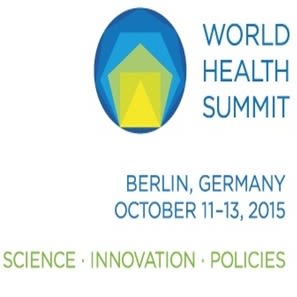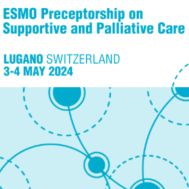7th World Health Summit
The WHS mission is to bring together researchers, physicians, key government officials and representatives from industry – as well as from NGOs and healthcare systems all over the world – to address the most pressing issues facing every facet of healthcare and medicine in the upcoming decade and beyond.
The World Health Summit is built on the stable foundation of academic excellence provided by the M8 Alliance of Academic Health Centers, Universities and National Academies – an organization committed to improving global health. The WHS also has strong political support from a variety of partners at global, national and state levels.
Main Goals and Partnership Assets
- To bring together all stakeholders at the level of equals
- To establish a unique and sustainable high-level forum and network
- To help define the future of medicine, research and healthcare
- To find answers to major health challenges – both today and tomorrow
- To make global recommendations and set health agendas worldwide
Registration Rates | | |
The following rates (in Euro, including 19% VAT) apply: | | |
| Until July 31, 2015
("Early Bird") | From August 1, 2015 |
Regular Ticket | 590 Euro | 890 Euro |
Non-OECD | 190 Euro | 290 Euro |
Non-Governmental
Organizations (NGO) | 190 Euro | 290 Euro |
Selected Health System
Workers | 190 Euro | 290 Euro |
Students (*) | 59 Euro | 89 Euro |
1-Day Ticket | 250 Euro | 350 Euro |
2-Days Ticket | 490 Euro | 650 Euro |
Reduced rates are available for partner organizations and NGOs.
Please contact registration(at)worldhealthsummit.org for more information.
(* Student participants must submit proof of attendance at an educational institution. Please send copies of student ID, letters of enrolment, or other proof to registration(at)worldhealthsummit.org or by fax to +49 30 450 517911.) (** Only available for October 12-13)
--- Registration will open in Spring 2015 ---
Topics
Antimicrobial Resistance: A Threat to Health Security
Antimicrobial resistance (AMR) reduces the ability to treat common infectious diseases. Many standard medical treatments will turn into high-risk procedures. It is now recognized as a global challenge and a priority health security threat by many countries.
Positioning Health in the Post-2015 Development Agenda
The Sustainable Development Goals (SDGs) address social, economic, and environmental challenges facing humankind and must be implemented through an integrated approach. Health is a critical dimension of the transformative change required to secure human well-being.
Climate Change and Health
Climate change is a health issue. Agreements at the United Nations Conference on Climate Change (COP21) in Paris in December 2015 will affect a wide range of social and environmental factors that influence health, such as clean air, safe drinking water, food supply and housing/shelter security.
Ebola: Preparedness and Response
The Ebola outbreak in West Africa in December 2013 was the largest and most complex Ebola outbreak since the virus was first discovered in 1976. The lessons learned underline the need for both core public health capacities: access to health services and cooperation between health and humanitarian actors. Social mobilization and community engagement are key to successfully controlling outbreaks.
The Digital Health Revolution
Digital Health allows us to track, manage, and improve personal and family health through wireless devices, sensing technologies, social networks, mobile and body area networks and health information technology. It has the potential to improve quality, reduce costs, and make medicine more personalized and precise.
Medical Education
There are increasing proposals to transform medical education curricula in order to ensure high-level quality care and the best outcome for patients. Many medical schools are responding with innovations aiming to ensure that the skills acquired during the formative years will prepare students well for a rapidly changing world of health care.
Refugee Health & Mega Disasters
Humanitarian disasters, relentless conflicts, and natural disasters such as earthquakes, tsunamis and hurricanes have resulted in millions of refugees and displaced persons over the past decade, all of whom are in need of help. In order to respond rapidly, we need healthcare and emergency aid systems that are not confined by national borders.
Additional topics include:
- Non-Communicable Diseases
- Mental Health: Evidence and Research
- Sexual Violence: The Health Sector Response
- Value-Based Healthcare
- Trade, Diplomacy and Global Health
Satellite Events
26th European Students' Conference: Science of Fiction? - Imagine the Future of Medicine
September 23-26, 2015
Host: ESC Berlin
Location: Charité - Universitätsmedizin Berlin, Campus Virchow Klinikum, Berlin-Wedding, 13353 Berlin
What seemed science fiction a few years ago is now being translated into clinical routine: Together with outstanding experts in the field we want to think outside the box and investigate new perspectives in modern medicine. How can we, future doctors and scientists, meet the promises and perils of the coming medical revolution? What is our role as young professionals in the exciting era of evolving technologies and personalized medicine? Which responsibilities and challenges is each one of us facing?






























